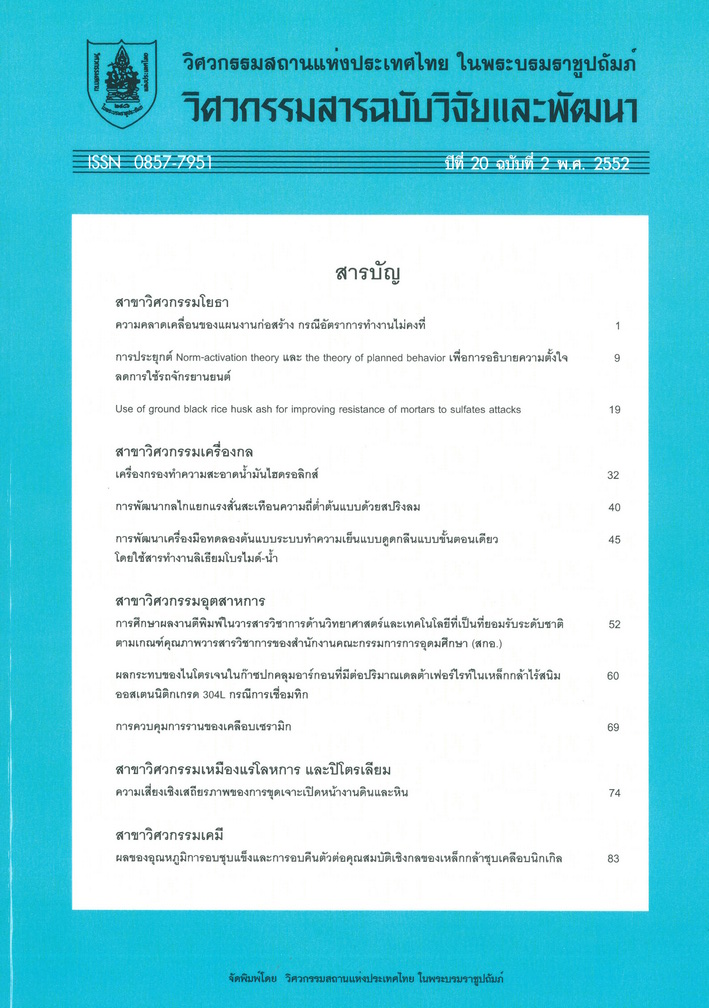Use of Ground Black Rice Husk Ash for Improving Resistance of Mortars to Sulfates Attacks
Main Article Content
Abstract
We reported the results of the resistant properties of cement mortars mixed with ground black rice husk ash (hereinafter referred to as RHA) under Na2SO4 and MgSO4 attacks. These properties studied included strength loss, weight loss and length change. In this work, the RHA as received came from electricity generating power plant at which rice husk/hull was used as a principal fuel to boil water. It was ground to finer particles for 4 hrs (Blaine fineness equal to 5400 cm2/g) by means of mechanical grinding with comparatively low cost grinding machine. The water-to-binder ratios of mortars were varied in the range of water requirement conforming to the flow value of 110 ± 5%. The main parameters were the replacement levels of RHA in Portland cement Type 1 and 5 (0, 10, 20, 30, 40 and 50% by weight), and 5 % Na2SO4 and MgSO4 solutions. Furthermore, the test results of cement-RHA mortars were compared with the specification criteria of the ASTM and standard and the properties of sulfate resisting cements were also taken into consideration in details. It was the replacement level of the RHA up to 20% wt. yielded lower strength loss, weight loss and length change of mortars than those of the normal cement mortars, whereas at the higher RHA levels it caused adversely effects to mortar resistance.
Article Details
The published articles are copyright of the Engineering Journal of Research and Development, The Engineering Institute of Thailand Under H.M. The King's Patronage (EIT).


